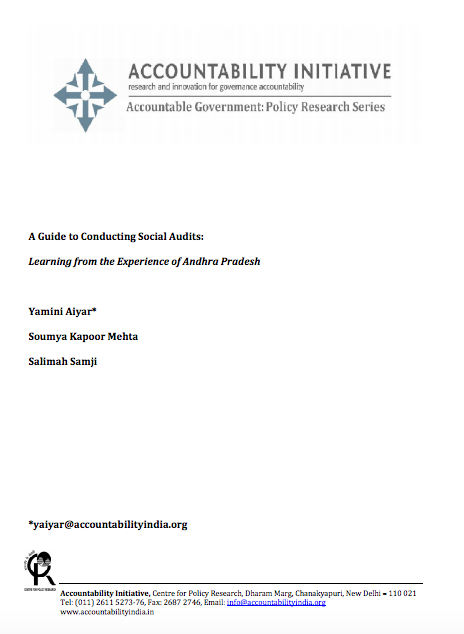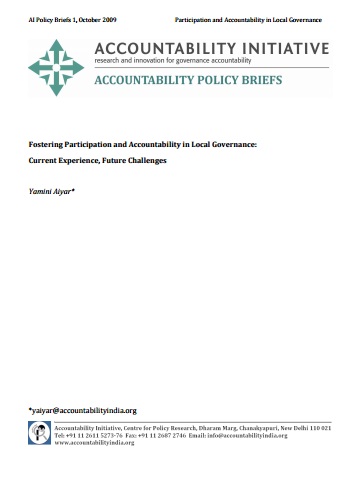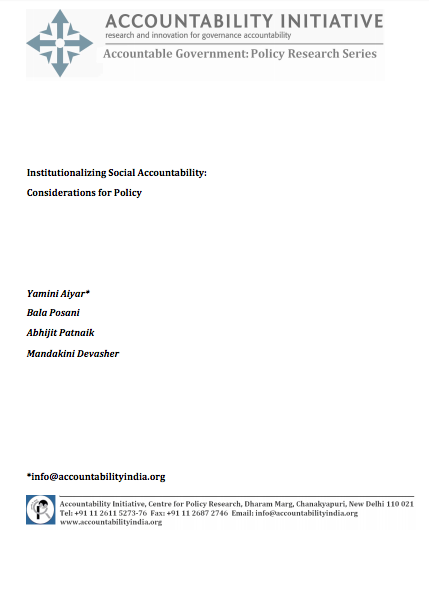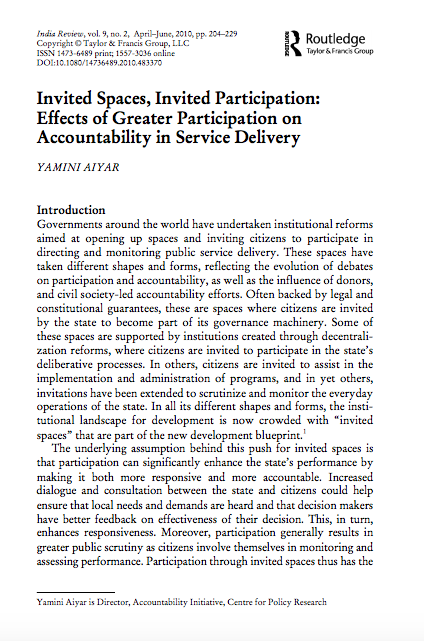
Governments around the world have undertaken institutional reforms aimed at opening up spaces and inviting citizens to participate in directing and monitoring public service delivery. These spaces have taken different shapes and forms, reflecting the evolution of debates on participation and accountability, as well as the influence of donors, and civil society-led accountability efforts. Often backed by legal and constitutional guarantees, these are spaces where citizens are invited by the state to become part of its governance machinery.
Some of these spaces are supported by institutions created through decentralization reforms, where citizens are invited to participate in the state’s deliberative processes. In others, citizens are invited to assist in the implementation and administration of programs, and in yet others, invitations have been extended to scrutinise and monitor the everyday operations of the state. In all its different shapes and forms, the institutional landscape for development is now crowded with “invited spaces” that are part of the new development blueprint.

Social accountability mechanisms can contribute to improved governance, increased development effectiveness through better service delivery, and citizen empowerment. However, critical to the success of Social Accountability initiatives is civil society and state capacities, and the synergy between the two.
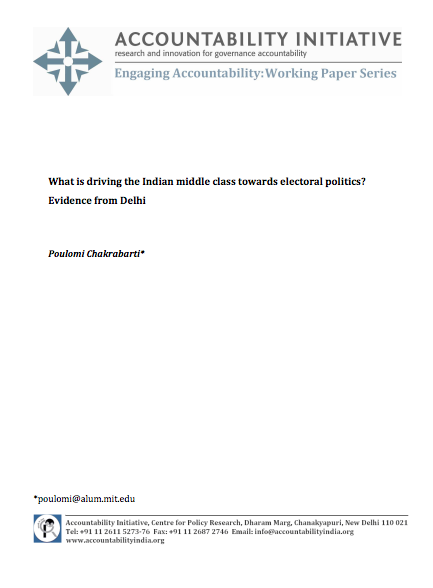
Neighborhood Associations have assumed an important role in public policy decision making as the principal voice of the middle class across urban India. In recent years, these associations have sought a more formal role in policy making by contesting for political office in local elections in at least five major cities. This is significant not only because of its “newness” and implications on public policy but also because it represents a blurring of boundaries between the civil society, traditionally characterized by its ‘apolitical’ nature, and the political society which has largely been the domain of the poor. Using the case of Delhi and drawing on examples from other metropolitan cities, this paper attempts to understand the factors that have led to the rise of middle class neighborhood associations and their subsequent advent into formal politics.
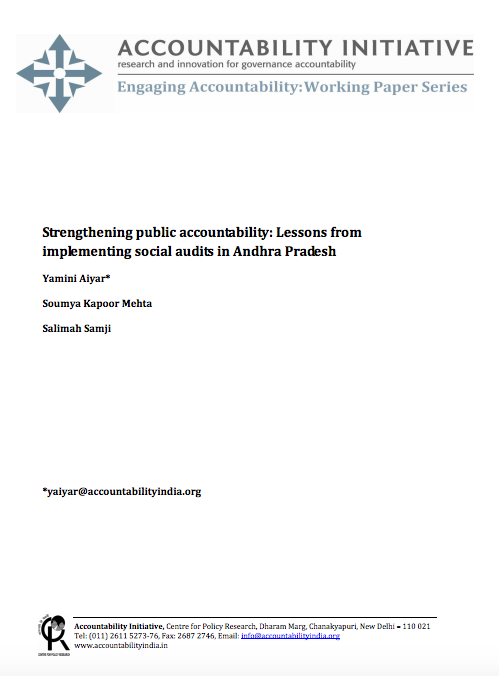
Public discourse in India has been dominated by a heated debate on how to address the endemic corruption in India’s public institutions. The agitation for the Lok Pal bill and the ensuing discussions has brought the role of anti-corruption institutions and accountability mechanisms to the heart of this debate. As potential solutions begin to emerge, it is important to reflect on current experience and take stock of lessons learned from India’s on-going efforts to build accountability systems and to address corruption. The key to designing an effective solution will lie in understanding the conditions under which solutions can work as well and the challenges they are likely to face.
This paper is an effort to contribute to this debate through an analysis of the experience of implementing one such accountability mechanism – social audits in the state of Andhra Pradesh (AP). Using Government Reported data on social audits and data collected through interviews with key government officials, this paper examines the accountability effects of regular, reliable institutionalized social audits in the state.
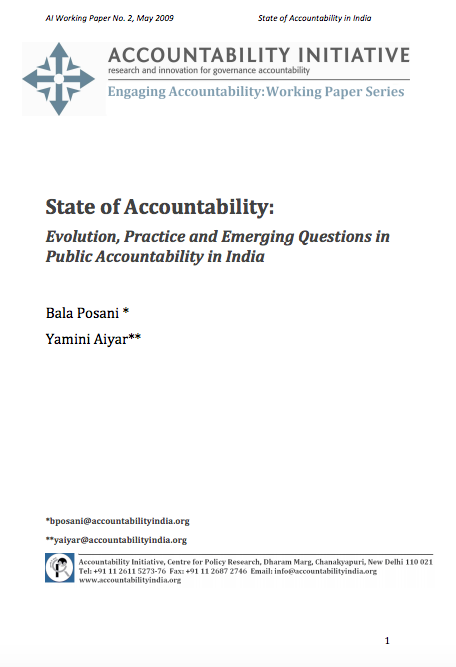
This working paper is an effort to trace the landscape of citizen-led efforts to hold the state accountable in India. It first offers an analytical narrative of the evolution of thought and practice in public accountability till the current emphasis on citizen-led accountability initiatives, and then after a quick overview of the different mechanisms and instruments through which citizens have begun to scrutinize the state it identifies some of the key limitations in the current discourse on citizen-led accountability initiatives, arguing for a research agenda that addresses some of these issues.


